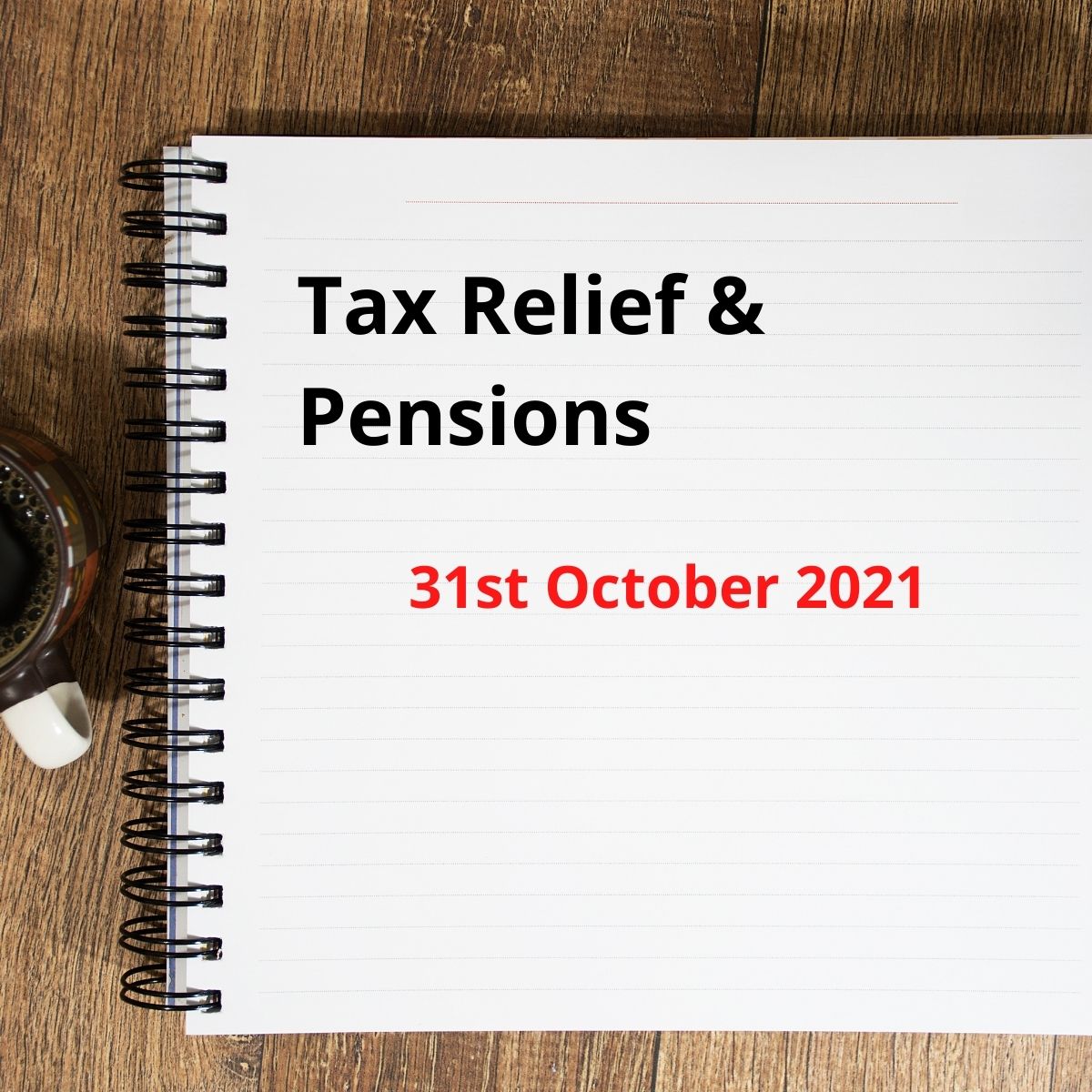As happens every year around this time, you’ll hear and see a lot of advertising for pension planning and self-assessment for those self-employed. These campaigns are targeted at those that complete a tax return annually. Usually with the guidance of an accountant/tax adviser, a client will be shown options on how to reduce their tax liability. The number one choice is through pension planning.
I’m writing this to share my idea’s on the subject. I believe that employees are losing out on this benefit at their peril when they can easily avail of it.
First let’s look at the dates. Self-assessment for the tax year 2020 happens on 31st October 2021, if you file a paper return. However, most people prepare their tax return on line and this gives them 17 days of extra grace to bring them to 17th November.
This means you have 6 weeks from to prepare.
What happens and how can I benefit?
As an employee you paid tax from your salary for 2020. If you make a pension contribution within the Revenue limits you can claim tax relief for that year. This way you’ll find yourself with a nice 40% tax rebate while at the same time boosting your income for your retirement years.
Here’s how it works. You pay a one off pension contribution of say €10,000. This usually comes from savings, earning little or nothing anyway! You get a tax refund of €4,000 – that’s it. You can do this annually, but if you like the idea, we’d recommend that you increase your monthly AVC and get the relief at source. By paying the premium’s monthly, you will reduce the investment risk through euro cost averaging.
The most efficient way of building wealth
Pensions are the most efficient way of building wealth. They are designed to allow you not only save for your retirement but to do so in a very efficient manner. Here’s my 5 reasons why:
- You get tax relief on the way into a pension fund.
- Your funds will grow tax free within the fund.
- You can take a tax free lump sum of up to 25% of your fund on retirement (up to €200,000) and benefit from a 20% tax rate on the next €300,000.
- Your income will be taxed at retirement but it is normally much less than what you’re currently paying.
- You can succession plan assets to the next generation tax efficiently.
It is that simple
Yes, building your wealth and your financial future through pension investment is that simple.
The usual disclaimers do obviously apply. You must have a clear plan of action. Your access access to funds before retirement will be limited. You need to be well briefed on the investment funds you’re choosing.
Any couple with income much in excess €70,000 will be paying tax at marginal 40%. They should really be looking at this option, especially if aged 40 or more. Single income earners benefit from €35,000.
That said you need to have sufficient cash flow to pay the premiums. This is where we can help by working with you to construct your own individual financial plan. This will take into account a range of factors and put in place the most suitable retirement planning structure. If you’d like to discuss any of these options in more detail just get in touch.




